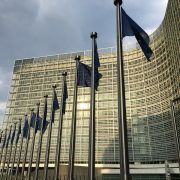Commission takes further action to ensure professionals can fully benefit from the Single Market
Yesterday, the Commission has taken further steps in infringement procedures against 26 Member States to ensure the full implementation of EU rules on the recognition of professional qualifications.
Only a well-functioning Single Market can deliver its full potential for citizens and businesses around Europe. In line with the Single Market Communication of 22 November 2018, the Commission is today taking further enforcement action to ensure that all Member States fully respect EU rules on the recognition of professional qualifications.
Professionals in the EU Single Market can move across borders and practice their occupation or provide services in another Member States. The EU has put rules in place to make it easier for professionals, such as doctors or architects, to have their professional qualifications recognised in another Member State. The Professional Qualifications Directive (Directive 2013/55/EU) was modernised in 2013 and had to be transposed into national law by 18 January 2016.
The Commission is today sending reasoned opinions to 24 Member States (Austria, Belgium, Bulgaria, Croatia, Cyprus, Denmark, Finland, France, Germany, Greece, Hungary, Ireland, Italy, Luxembourg, Malta, the Netherlands, Poland, Portugal, Romania, Slovakia, Slovenia, Spain, Sweden and the United Kingdom) and complementary letters of formal notice to 2 Member States (Estonia and Latvia) regarding the non-compliance of their national legislation and legal practice with EU rules on the recognition of professional qualifications (Directive 2005/36/EC as amended by Directive 2013/55/EU).
The reasoned opinions and supplementary letters of formal notice cover issues crucial for the functioning of the Professional Qualifications Directive, in particular:
- European professional card: Austria, Belgium, Bulgaria, Croatia, Cyprus, Denmark, Finland, France, Hungary, Italy, Portugal, Romania, Slovakia, Slovenia and Sweden;
- alert mechanism: Austria, Belgium, Croatia, Denmark, Estonia, France, Germany, Latvia, Malta, Portugal, Romania, Slovakia, Slovenia, Spain and Sweden;
- possibility to have partial access to a professional activity: Austria, Belgium, Croatia, Denmark, Estonia, France, Germany, Hungary, Latvia, Malta, Poland, Slovakia, Slovenia and Sweden;
- proportionality of language requirements: Belgium, Bulgaria, Croatia, Germany, Poland, Romania and Slovakia;
- setting up of assistance centres: France, Hungary, Italy and Portugal;
- transparency and proportionality of regulatory obstacles: Austria, Belgium, Bulgaria, Croatia, Cyprus, Denmark, Finland, France, Germany, Greece, Hungary, Ireland, Italy, Latvia, Luxembourg, Malta, the Netherlands, Poland, Portugal, Romania, Slovakia, Slovenia, Spain, Sweden and the United Kingdom.
These issues were also mentioned in a Communication from January 2017 on reform recommendations for regulation in professional services.
All Member States concerned have now two months to respond to the arguments put forward by the Commission. Without a satisfactory response, the Commission may decide to address a reasoned opinion to Estonia and Latvia, and to refer the other 24 Member States to the Court of Justice of the EU.
Background
With the EU rules on the recognition of professional qualifications (Directive 2005/36/EC as amended by Directive 2013/55/EU) the EU has put in place a modern system for the recognition of professional qualifications and experience across the EU. It promotes automatic recognition of professional qualifications in EU countries, making it easier for professionals to provide their services around Europe, whilst guaranteeing an improved level of protection for consumers and citizens.
The Directive applies in general to regulated professions such as nurses, doctors, pharmacists or architects. Exceptions are professions governed by specific EU directives such as auditors, insurance intermediaries, air traffic controllers, lawyers and commercial agents. The Directive also sets rules for
temporary mobility, establishment in another EU country, various systems of recognition of qualifications, and checks for knowledge of languages and professional academic titles.
These rules are complemented by the European professional card (EPC), an electronic certificate available since January 2016 for five professions (general care nurses, physiotherapists, pharmacists, real estate agents and mountain guides). To ensure that EU patients and consumers are adequately
protected, the Commission has also introduced an Alert Mechanism. The Member State that receives professionals from other EU countries is responsible for checking their qualifications or fitness to practice and, in cases of justified doubt, contacting the Member State that issued the diploma.
To facilitate and speed up this exchange of information between Member States, the Commission has put into place the electronic Internal Market Information System (IMI).
For More Information
- On the key decisions in the March 2019 infringements package, see full MEMO/19/1472.
- On the general infringements procedure, see MEMO/12/12.
- On the EU infringements procedure.
This is a press release published by the European Commission on 07/03/2019



